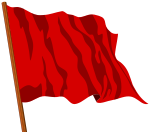
Back Sosialisme Afrikaans Sozialismus ALS Socialismo AN Gemǣnscipes rǣd ANG اشتراكية Arabic إشتراكية ARY اشتراكيه ARZ সমাজবাদ Assamese Socialismu AST Sosializm Azerbaijani
Struje
Vjerski socijalizam
Ključni problemi
Ljudi i organizacije
Povezane teme
|
|---|

Socijalizam (engl. socialism; franc. socialisme; njem. sozialismus; novovjeka tvorba prema lat. socialis: društveni; saveznički), pojam koji označava ideje, teorije, pokrete koji teže socijalizaciji (podruštvljenju) temeljnih uvjeta ljudske egzistencije. Nastao je u 18. stoljeću u Europi kao reakcija na industrijalizaciju i kapitalizam.[1][2][3] Socijalizam se kroz povijest svojega razvoja pojavljivao unutar različitih političkih koncepcija i teorija, od kojih su najznačajnije: utopijski socijalizam, anarhizam, marksizam različitih struja, antiautoritarni komunizam, boljševizam (autoritarni komunizam), religijski socijalizam (kršćanski socijalizam i sl.), demokratski socijalizam, socijaldemokracija itd.[4][5][6][7]
Svaka varijanta socijalističke ideje nastoji u industrijaliziranom društvu ostvariti društveni poredak u kojem neće postojati kapitalizam, tj. u kojemu će se ukinuti privatno vlasništvo u gospodarstvu. Valja opaziti da je takav cilj u potpunoj oprjeci s liberalnom demokracijom, u kojoj se poštovanje prava vlasništva uzima kao jedan od preduvjeta demokratičnosti odnosa u društvu, a pravo vlasništva sagledava kao jedno od temeljnih ljudskih prava.
- ↑ Sinclair, Upton (01. 01. 1918). Upton Sinclair's: A Monthly Magazine: for Social Justice, by Peaceful Means If Possible. »Socialism, you see, is a bird with two wings. The definition is 'social ownership and democratic control of the instruments and means of production.'«
- ↑ Nove, Alec. „Socialism”. New Palgrave Dictionary of Economics, Second Edition (2008). »A society may be defined as socialist if the major part of the means of production of goods and services is in some sense socially owned and operated, by state, socialised or cooperative enterprises. The practical issues of socialism comprise the relationships between management and workforce within the enterprise, the interrelationships between production units (plan versus markets), and, if the state owns and operates any part of the economy, who controls it and how.«
- ↑ Nove, Alec. „Socialism”. New Palgrave Dictionary of Economics, Second Edition (2008). »A society may be defined as socialist if the major part of the means of production of goods and services is in some sense socially owned and operated, by state, socialised or cooperative enterprises. The practical issues of socialism comprise the relationships between management and workforce within the enterprise, the interrelationships between production units (plan versus markets), and, if the state owns and operates any part of the economy, who controls it and how.« Rosser, Mariana V. and J Barkley Jr. (23. 7. 2003). Comparative Economics in a Transforming World Economy. MIT Press. str. 53. ISBN 978-0262182348. »Socialism is an economic system characterised by state or collective ownership of the means of production, land, and capital.«
- ↑ "What else does a socialist economic system involve? Those who favor socialism generally speak of social ownership, social control, or socialization of the means of production as the distinctive positive feature of a socialist economic system" N. Scott Arnold. The Philosophy and Economics of Market Socialism : A Critical Study. Oxford University Press. 1998. p. 8
- ↑ Busky, Donald F. (20. 7. 2000). Democratic Socialism: A Global Survey. Praeger. str. 2. ISBN 978-0275968861. »Socialism may be defined as movements for social ownership and control of the economy. It is this idea that is the common element found in the many forms of socialism.«
- ↑ Bertrand Badie; Dirk Berg-Schlosser; Leonardo Morlino (2011). International Encyclopedia of Political Science. SAGE Publications, Inc. str. 2456. ISBN 978-1412959636. »Socialist systems are those regimes based on the economic and political theory of socialism, which advocates public ownership and cooperative management of the means of production and allocation of resources.«
- ↑ Zimbalist, Sherman and Brown, Andrew, Howard J. and Stuart (1988). Comparing Economic Systems: A Political-Economic Approach. Harcourt College Pub. str. 7. ISBN 978-0155124035. »Pure socialism is defined as a system wherein all of the means of production are owned and run by the government and/or cooperative, nonprofit groups.«
